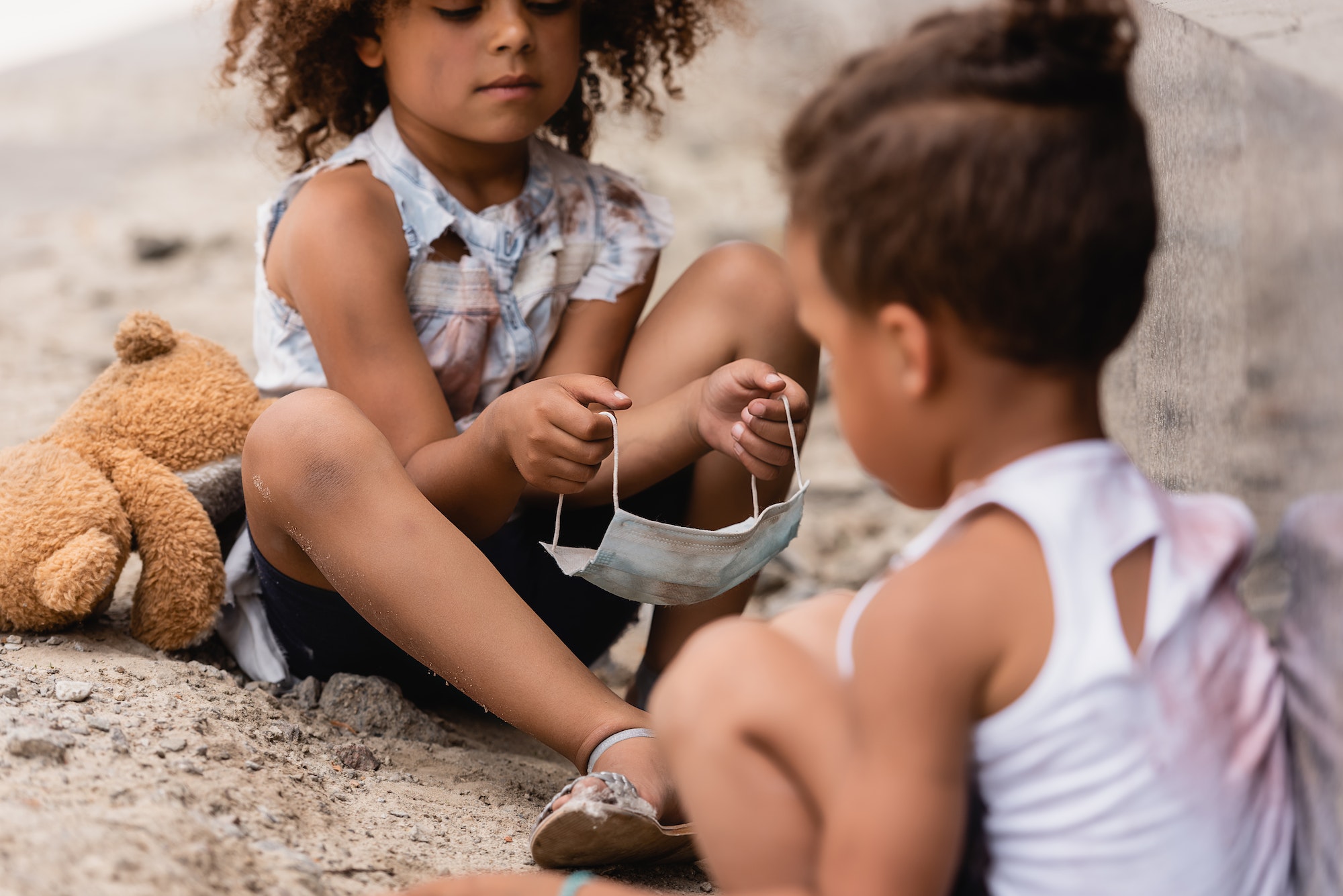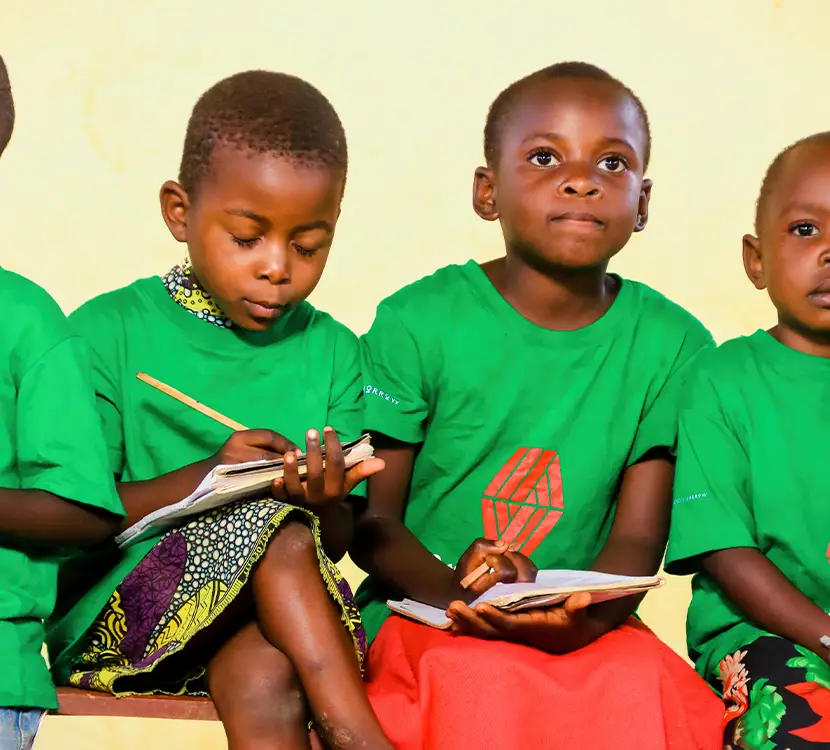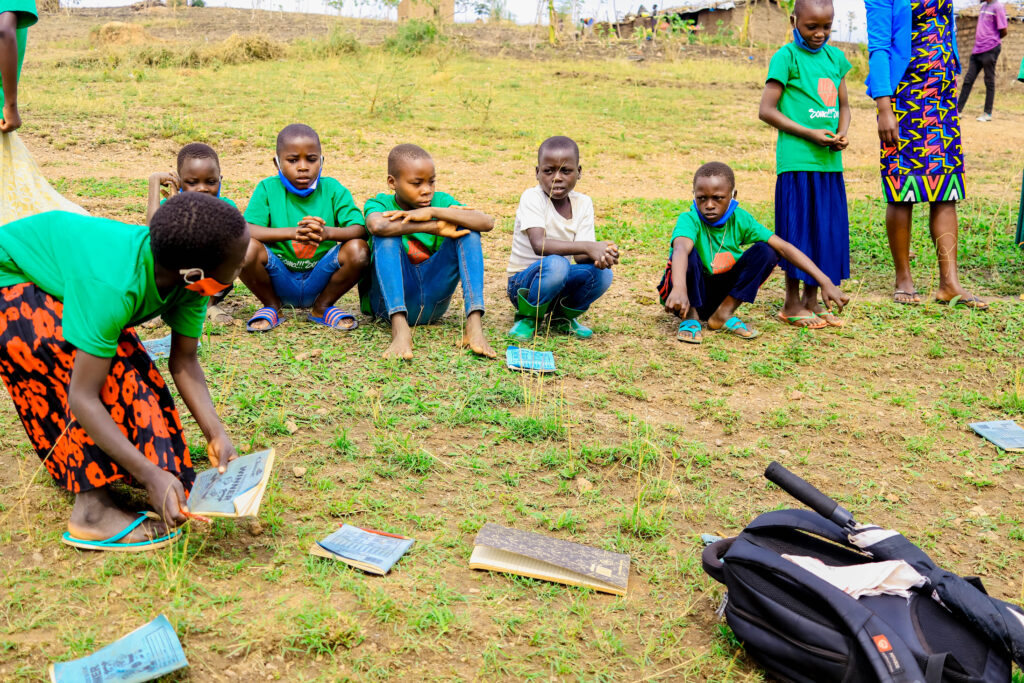

Soma!!!Soma!!! is a community-based program that prepares children to enroll in formal schools and works with parents to help them understand the importance of education.
After completing the program, instructors help families enroll their children in school and follow-up regularly to ensure students’ continued success.
Community and parental involvement is key. Now and Tomorrow Uganda holds workshops on education, hygiene, communication, and parenting to support families and girls.

Lorem ipsum dolor sit amet, consectetur adipiscing elit. Ut elit tellus, luctus.

Lorem ipsum dolor sit amet, consectetur adipiscing elit. Ut elit tellus, luctus.
The Soma!!!Soma!!! Program follows a Ministry of Education and Sports-approved Language Bridging Curriculum adapted for refugee and host learners aged 8–14. The curriculum runs for 20 weeks across three progressive levels.
Classes are held on Mondays, Wednesdays, and Fridays (8:00am –12:00pm), with Thursdays dedicated to mentorship and psychosocial support. Each class is led by two trained instructors; one for English and one for the native language. Instructors monitor learner progress through weekly informal assessments and formal evaluations periodically throughout the program.

Soma!!!Soma!!! promotes strong family and community involvement in children’s education. Parents form structured committees and receive training to support school readiness and retention.
Program staff conduct regular community workshops on child rights, early learning, and financial literacy. “Back-to-School” campaigns engage local leaders and role models to mobilize out-of-school children. Once children have transitioned to local schools, instructors carry out home and school visits for at-risk learners to provide support and reduce dropout.

To remove learning barriers, Soma!!!Soma!!! provides scholastic materials and daily porridge meals to learners annually, promoting consistent attendance and engagement.
School fees are fully covered for one term. Continued support for Orphans and Vulnerable Children (OVCs) is offered through education savings accounts managed by parent-led Village Education and Savings Associations (VESAs).

Facilitators are selected based on A-Level or Grade 3 teaching qualifications, with preference for local community members. They receive a one-week induction in curriculum delivery, child protection, and learner-centered methods.
Ongoing support includes annual refresher courses, peer exchanges, and performance monitoring based on learner outcomes and class attendance.

The staff uses a comprehensive system to track program effectiveness. Instructors record attendance daily, verify transitions to formal school quarterly, and assess retention annually. Committees review parental engagement bi-annually through reports. Supervisors observe facilitator performance quarterly, and assess learner outcomes every six weeks using structured evaluations.
Parental engagement is reviewed bi-annually through committee reports. Facilitator performance is observed quarterly, while learner outcomes are evaluated every six weeks through structured assessments.

VESAs Integration
Parents contribute UGX 500–1,000 per child weekly into VESAs, creating an education fund to pay school fees after program tuition support ends. This model is being piloted in Kabahinda and Mugenyi.
Local Engagement
Facilitators and program champions are based within local zones to drive ownership. Community leaders support enrollment drives, and mobilize residents to contribute to the construction and maintenance of learning spaces.

